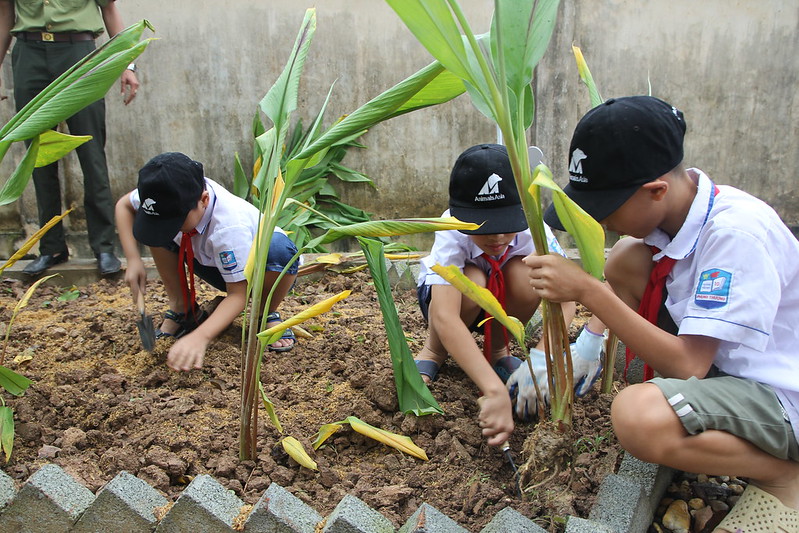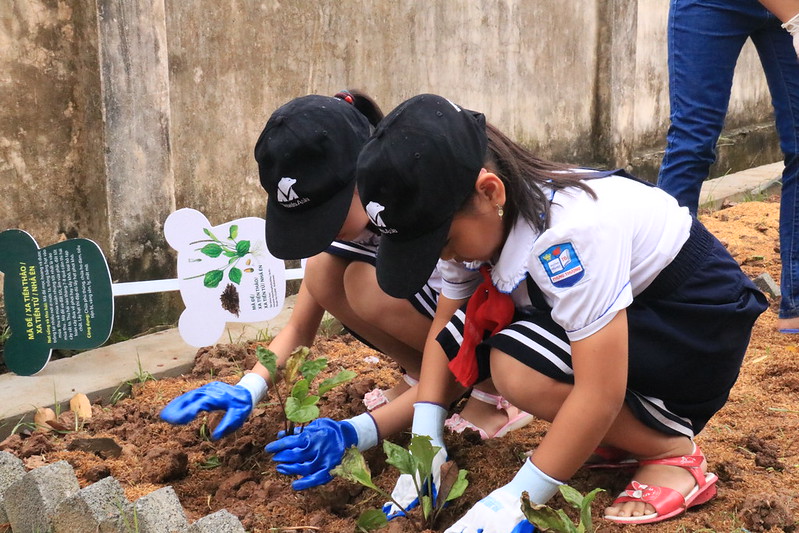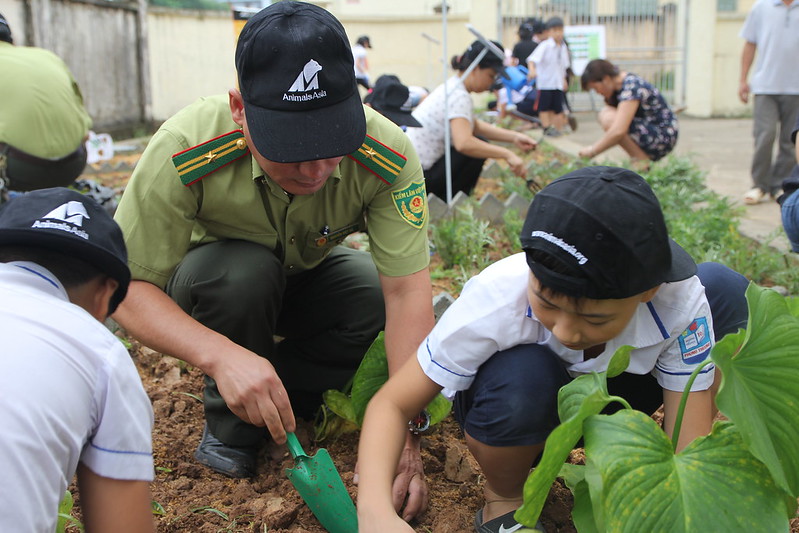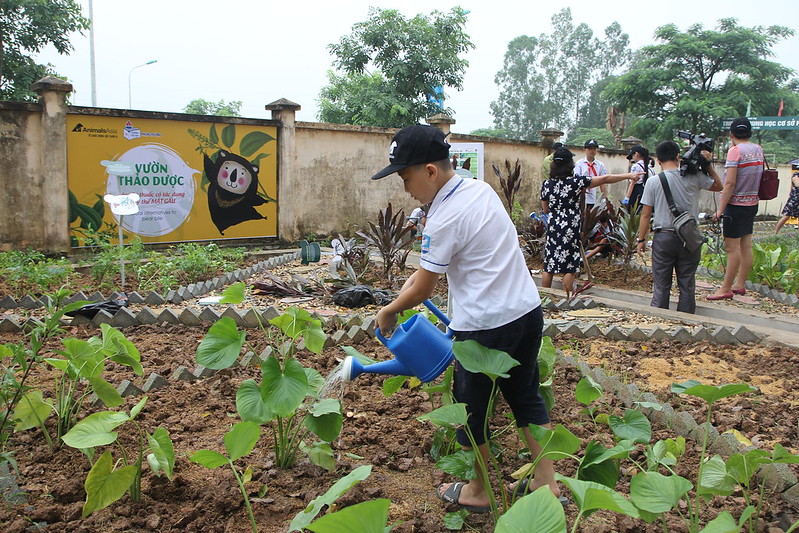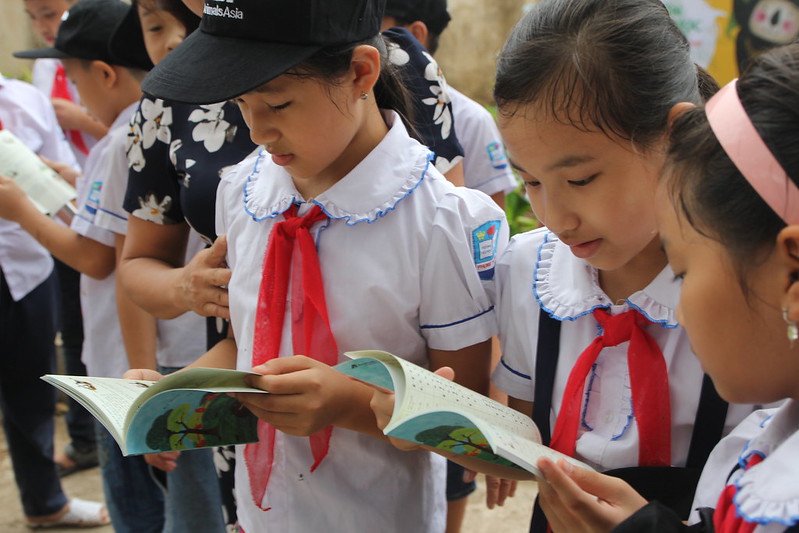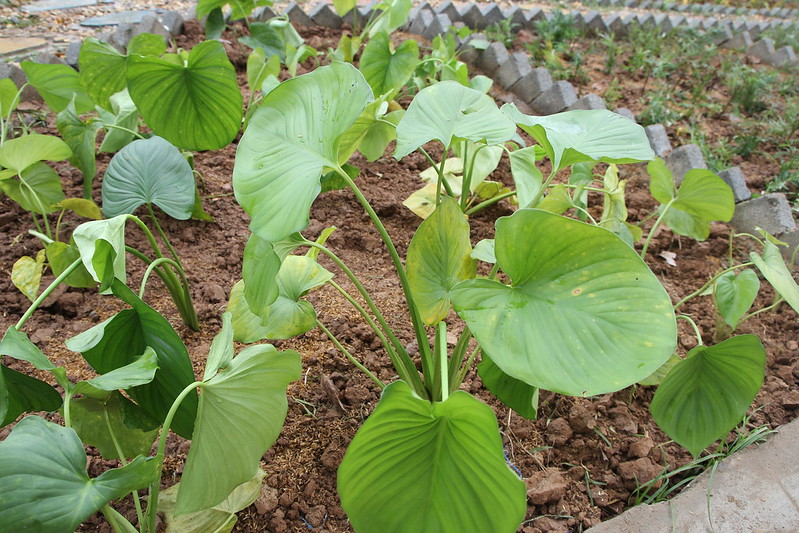Reducing demand for bear bile: “Mum, you’ll never guess what I learned in school today”
17 August 2018
Children of bear bile farmers plant garden of herbal alternatives to bile in their school in lesson they’ll definitely tell their parents.
When the children of Phung Thuong Primary School returned home on Wednesday and sat down for the evening meal, they had something very important to tell their parents.
That day, media from Vietnam’s capital had been at the school to watch the children plant and unveil a garden of herbal alternatives to bear bile.
The children learned how bear bile farming harms bears and decimates wild populations. They also found out that traditional medicine doctors have identified 32 cheap and easily planted herbal alternatives so that nobody needs to use bile from bears ever again.
For their parents, this may have come as a shock.
Phung Thuong village is one of Vietnam’s last remaining bear bile hotspots. The village covers just 6.27km2, but holds 200 bears across 37 households.
Many of the children at the school have grown up in households which keep bears or have relatives and neighbours who do.
Animals Asia Vietnam Director Tuan Bendixsen said:
“These pupils are the children of bear bile farmers, but they deserve a much richer inheritance. They deserve to grow up in a country with its wildlife heritage still intact, where bears still roam the forest and where cruelty isn’t a common reality.
“The legal framework is in place now for that to happen, but without reducing demand for bear bile, we risk the trade being pushed underground and the bile imported from neighbouring countries.
“To fully end bear bile farming, it’s absolutely vital that ordinary people no longer want to use bile.
“I’ve no doubt that these children will return home and tell their parents what they learned and did in school today. They planted the seeds of a bear bile farm-free future.”
In 2017, Animals Asia signed a legally binding agreement with the Vietnam government to close down every bear bile farm in the country and move all the bears to sanctuaries by 2022.
Around 800 bears remain on privately owned farms around the country – nearly a quarter of them in the tiny village of Phung Thuong.
Animals Asia has been working in Phung Thuong since 2010 convincing farmers to give up their trade. This lobbying led to the rescue of 20 bears in Binh Duong province owned by a family in Phung Thuong.
In 2015, Animals Asia intensified their focus on Phung Thuong, organising medicinal clinics for the elderly and educational activities with young people to reduce demand for bear bile and increase awareness of the industry’s inherent cruelty and illegality.
To date, Animals Asia has planted seven gardens of herbal alternatives to bear bile in Vietnam. The gardens serve as educational hubs designed to reduce demand for bear bile.
Tuan said:
“The bear bile industry has no future in Vietnam, that much is clear. Not just because the government has vowed to end it in partnership with Animals Asia, but because the next generation wants nothing to do with it.”
BACK
